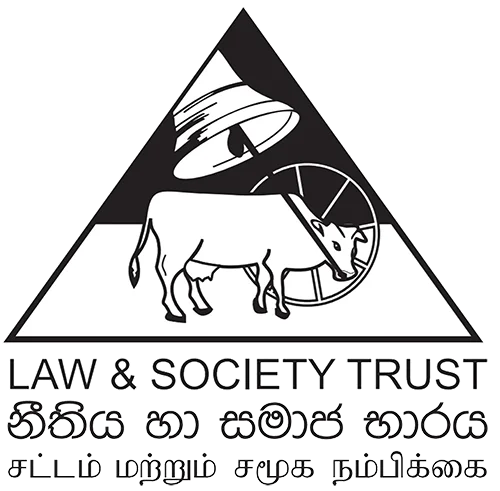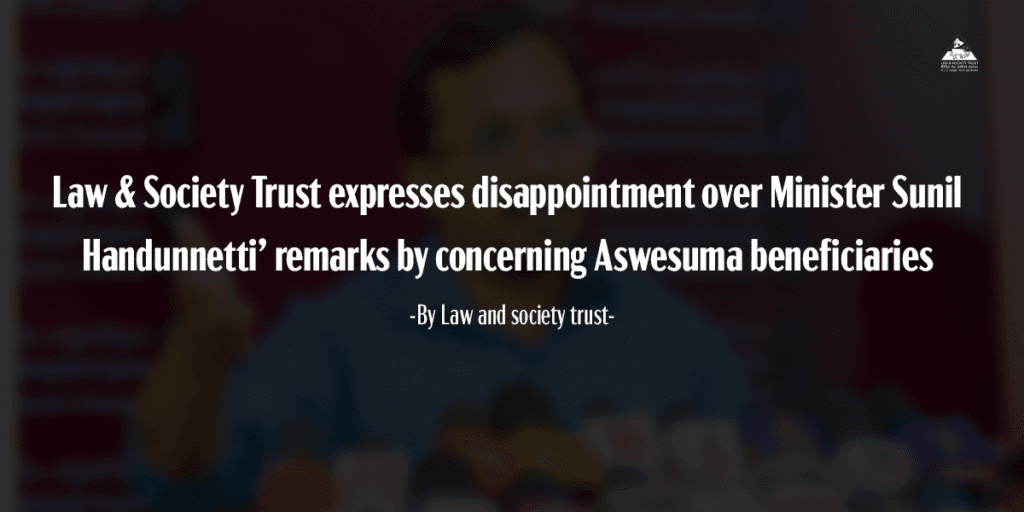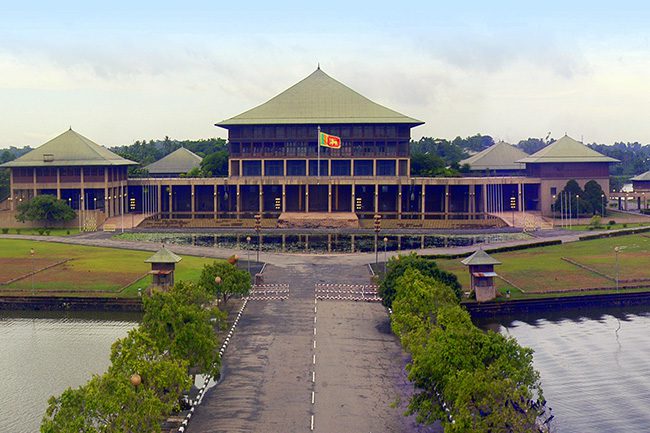Colombo, 7 November 2025
The Law & Society Trust (LST) expresses deep disappointment at the recent remarks made by Minister Sunil Handunnetti, who reportedly stated that beneficiaries of the Aswesuma programme should feel ashamed for taking taxpayers’ money through the government in the form of “legalised begging.”
In making these comments, the Minister evoked the familiar and harmful trope of beneficiaries and was pitting beneficiaries and taxpayers against each other, falsely implying that beneficiaries of social assistance themselves are idle, useless, and unproductive, as they do not pay taxes. It also regresses from the urgent need to strengthen social solidarity in Sri Lanka, as we brace ourselves for the challenges to come in the years ahead. Statements such as these stigmatise people experiencing poverty and hardship, for many of whom Sri Lanka’s prolonged economic crisis continues.
Public recognition that social protection is a legitimate, rights-based instrument is fundamental in ensuring the dignity and well-being of all citizens. Social protection is not charity; it is a cornerstone of a just and equitable society, and an essential obligation of the State under both domestic and international law.
The Law & Society Trust further notes with concern that Minister Handunnetti’s remarks contradict the election promises of the National People’s Power (NPP), which committed to broadening social protection and building a fairer economic model that leaves no one behind. The NPP’s campaign recognised that poverty and inequality in Sri Lanka are structurally rooted in decades of exclusion, economic mismanagement, and social injustice, and that these challenges demand compassion, solidarity, and evidence-based policy responses, not moral judgment.
At a time when nearly one in three households faces some form of income insecurity, political leaders must set an example in strengthening social cohesion and public trust. The language used to discuss poverty and social assistance should reflect empathy, respect, and a collective responsibility to uplift those most affected by crisis.
The Law & Society Trust calls on the government to demonstrate stronger leadership in fostering social solidarity and in fulfilling its pledge to create a humane and inclusive social protection system. The Aswesuma programme, though imperfect, represents an opportunity to rebuild Sri Lanka’s social contract on principles of equality, dignity, and shared responsibility. That opportunity must not be undermined by rhetoric that divides citizens between the “deserving” and “undeserving” poor.
The Law & Society Trust urges all public officials to uphold the spirit of the Constitution and the values of social justice enshrined within it, and to remember that eradicating poverty is a national duty, not an act of charity.





